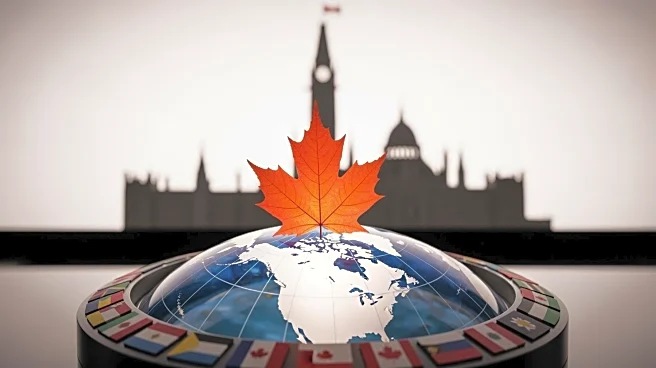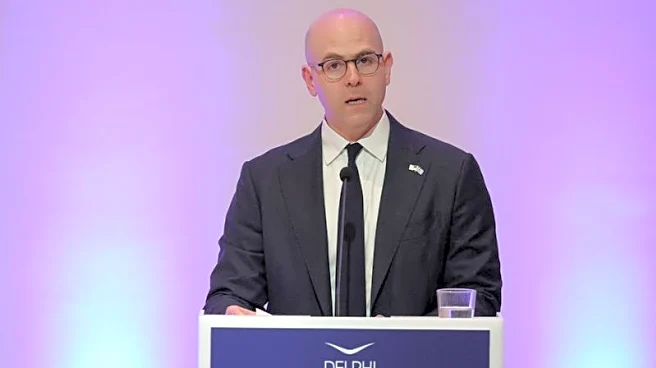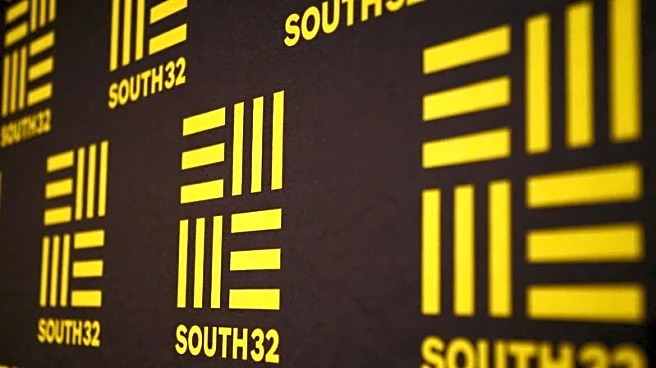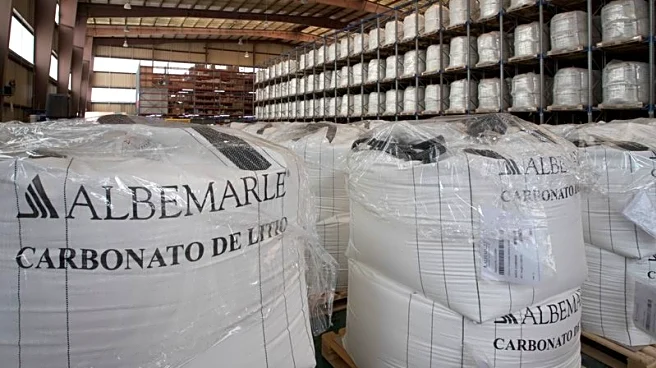What's Happening?
Ontario Premier Doug Ford has publicly called for an apology from Pete Hoekstra, the U.S. ambassador to Canada, following a reported incident where Hoekstra allegedly shouted profanely at Ontario’s representative in Washington, David Paterson. The confrontation
occurred during a reception hosted by the Canadian American Business Council in Ottawa. Ford described Hoekstra's behavior as 'absolutely unacceptable' and 'unbecoming for an ambassador.' The incident was reportedly triggered by Ontario's television ad criticizing President Trump's tariffs, which cited a speech by former U.S. President Ronald Reagan. The ad angered President Trump, who announced plans to increase tariffs on Canadian imports by an additional 10%. Ford emphasized that the ad was intended to spark conversation rather than provoke, and he urged Hoekstra to apologize to Paterson.
Why It's Important?
This diplomatic spat highlights ongoing tensions between the U.S. and Canada over trade policies, particularly tariffs imposed by President Trump. The incident underscores the fragile nature of international relations and the impact of political rhetoric on diplomatic interactions. The call for an apology from the U.S. ambassador reflects the seriousness with which Canada views the matter, potentially affecting bilateral relations. The situation also illustrates the broader implications of trade disputes, which can influence economic policies and affect industries reliant on cross-border commerce. Stakeholders in both countries, including businesses and policymakers, may face increased uncertainty as trade tensions escalate.
What's Next?
The demand for an apology from Ambassador Hoekstra could lead to diplomatic discussions aimed at resolving the issue. If Hoekstra responds positively, it may help ease tensions and restore diplomatic decorum. However, if the situation remains unresolved, it could further strain U.S.-Canada relations, potentially impacting ongoing trade negotiations and economic cooperation. Political leaders and business groups in both countries may need to engage in dialogue to address underlying trade concerns and prevent further escalation.
Beyond the Headlines
The incident raises questions about the role of diplomacy in managing international trade disputes. It highlights the ethical considerations of using political ads to influence public opinion and policy decisions. The situation also reflects the cultural dimensions of diplomatic interactions, where respect and decorum are crucial for maintaining positive relations. Long-term, this event could prompt discussions on the effectiveness of diplomatic channels in addressing trade conflicts and the importance of maintaining respectful communication between nations.

















